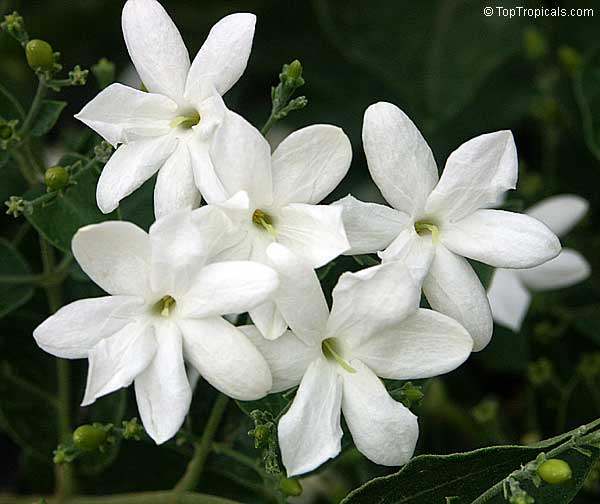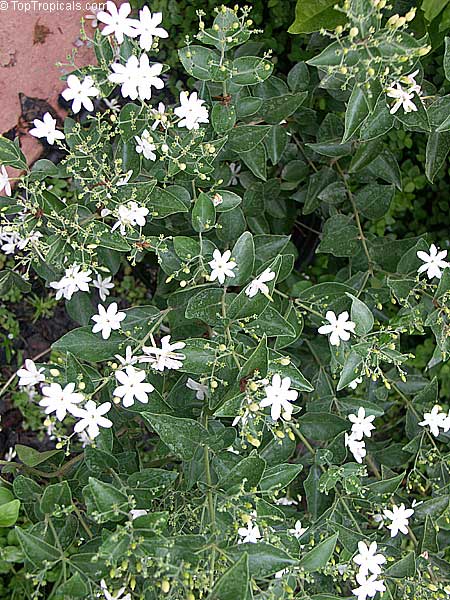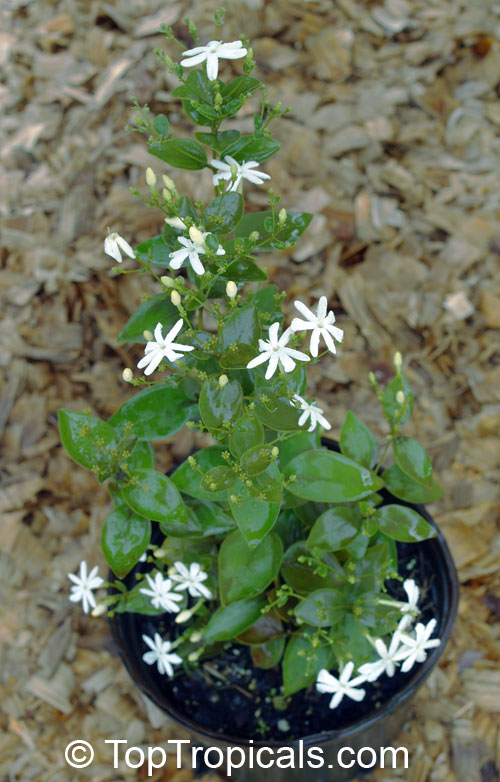Featured plant - a special for your collection
Jasminum molle - sacred Jui Jasmine with the strongest aroma
Scientific name: Jasminum molle, Jasminum auriculatum
Family: Oleaceae
Common names: Jasmine Molle, Indian Jasmine, Jui, Juhi (Hindi), Jai (Marathi), Yuthika (Sanskrit), Usimalligai, Uccimalligai (Tamil), Adavimalle (Telugu), Sucimulla (Malayalam), Sanna Mallige (Kannada)
Origin: Australia
Distribution in India: Uttar Pradesh, West Bengal and the Western Ghats
This plant is a must for everyone who appreciates fragrant flowers. The species is not very common though it deserves a special attention. Flowers of Jasmie Molle have as srong fragrance as world-famous Jasmine Sambac, while the plant itself has many advantages comparing with King of Jasmines. It is a dense, naturally bushy, fast-growing medium-size shrub that responds well to pruning and can be used both for potting culture and garden specimen, as well as wonderful fragrant hedge. If left unpruned, Molle may shoot long vining branches, but normally the plant doesn't require any support and grows as a multi-stem bush with a strong root system. The plant is relatively cold hardy, like most of the jasmines. It will take at least a few hours of light frost without any damage.
It has simple ovate dark green small leaves and powdery satin white flowers that cover the plant during blooming seasons which may occur in splashes several times a year. The most profuse blooming is during hot summer months. Another splash of flowers may happen in Fall, and even in winter.
Flowers have extremely heavy gardenia type scent. They appear in bunches.
Jasmine Molle is very easy to grow, takes both sun and shade, dry and moist conditions.
In India, the flower of Jasmine Molle is held sacred to all forms of Goddess Devi and is used as sacred offerings during Hindu religious ceremonies:
"...Goddess Saraswathi, who is fair as a jasmine flower, the moon or a snow flake, who is dressed in white and whose hands are adorned by Veena, who is seated in a white lotus, to whom Brahma, Vishnu and Maheshwara pray, please protect us..."
It is adorned for its fragrance and beauty. The flowers have been traditionally used for making garlands. They are worn to decorate the hair especially in the southern parts of India.
Jasmine oil is used as medicine as well as to anoint the hair. The roots of the plant are useful in the treatment of skin diseases especially for ringworms. It is a used in making perfumes and incense sticks.
Highly recommended jasmine for scented garden or as indoor plant.
Order Jasmine Molle:
Goddess Devi: the conjoined image of three especially popular manifestations of the Hindu Divine Mother. (Picture courtesy of Wikimedia)




